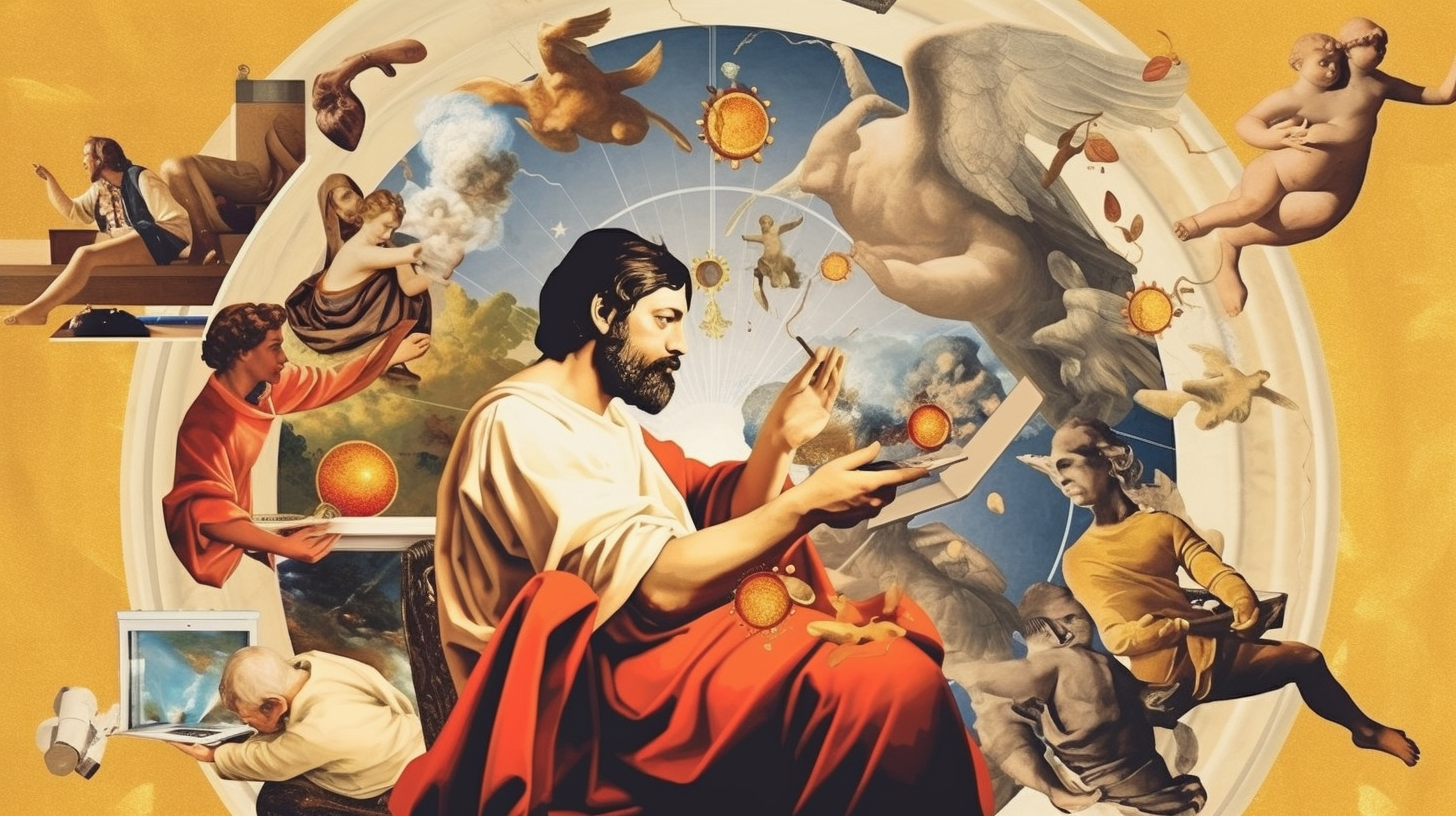The Intersection of Philosophy and Technology: Ethical Considerations
In our era of rapid technological advancements, where the wheels of progress turn ever faster, the realm of philosophy finds itself at a critical intersection. The amalgamation of philosophy and technology raises profound ethical considerations that demand immediate attention. At this juncture, we must delve into the uncharted territory of intellectual inquiry, challenging prevailing assumptions and thoroughly exploring the interplay between human values and the relentless march of innovation.

The Fallacy of Technological Determinism:
To grasp the ethical implications of technology, we must first dispel the fallacy of technological determinism. The notion that technology inevitably shapes society and morality is a grave oversimplification. We cannot allow ourselves to be ensnared in the deterministic trap, which absolves us of the responsibility to critically examine our choices in the realm of technology.
History provides ample evidence to reject this fallacy. For instance, the advent of the printing press did not inevitably lead to an enlightened society. Instead, the transformative power of the written word was harnessed through the engagement of human reason and the moral choices made by individuals. Similarly, technology today does not dictate our ethics; our choices shape the trajectory of progress.
The Fallacy of Moral Luddism:
While we must acknowledge the ethical challenges posed by technology, we must also avoid falling into the trap of moral Luddism. Rejecting technological progress altogether is an oversimplification born out of fear and nostalgia. The Luddite fallacy, as it were, fails to recognize the potential for technology to serve as a tool for human betterment.
Consider medical advancements. Technology has undeniably extended and improved human lives, from vaccines to life-saving surgical procedures. Yet, a wholesale rejection of technological progress would condemn countless individuals to needless suffering and death. Instead, our ethical inquiry must not dismiss the possibility of leveraging technology for the greater good.

The Paradox of Information Overload:
The advent of the digital age has ushered in an unprecedented era of information accessibility. Yet, as we drown in a deluge of data, we must confront the paradoxical nature of this newfound abundance. While information empowers us, it also inundates us, leaving us vulnerable to manipulation and obfuscation.
In an era where fake news and algorithmic echo chambers threaten our collective sense of truth, the ethical question arises: how do we navigate this treacherous sea of information? First, we must engage with technology critically, employing reason and skepticism to discern fact from fiction. Philosophy, emphasizing critical thinking and epistemological inquiry, can provide us with the intellectual tools to navigate this information minefield.
The Ethical Dilemma of Artificial Intelligence:
As we stand on the cusp of an AI revolution, the ethical dilemmas surrounding artificial intelligence loom large. From autonomous vehicles to algorithmic decision-making, the integration of AI raises profound questions about accountability, privacy, and the preservation of human autonomy.
The cautionary tales of history are instructive. We must recall the dark chapters of humanity's past, where unchecked power led to untold suffering. The rise of AI necessitates a robust ethical framework to ensure that our creations do not become tyrannical overlords. Philosophy, with its grounding in moral reasoning, must play a central role in shaping the guidelines and regulations that govern the development and deployment of AI.

Conclusion:
The intersection of philosophy and technology presents us with a formidable ethical frontier. In navigating this uncharted territory, we must reject the technological determinism fallacy and the simplistic rejection of progress. Instead, by engaging critically, drawing upon historical references, and employing the intellectual rigor that characterizes philosophy at its best, we can confront the ethical challenges of technology.
The collision of reason and progress demands our unwavering commitment to the pursuit of truth and the preservation of human values. Let us not shy away from this intellectual odyssey but rather embrace it wholeheartedly, forging a path that respects both the potential of technology and the timeless wisdom of philosophy. Only then can we hope to navigate the complex ethical landscape and shape a future that upholds our principles.

Plato Re-Imagined
This course offers 32 comprehensive lectures exploring most of Plato's dialogues. These lectures guide students toward a consilient understanding of the divine—a concept that harmonizes knowledge across disciplines and resonates with secular and religious leaders. As a bonus, Lecture #33 focuses on consilience, demonstrating how different fields of knowledge can converge to form a unified understanding.






